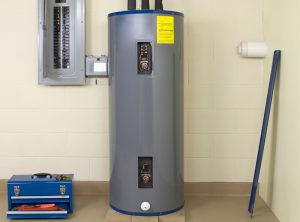 If you’ve never heard the term “hard water” before, we’d be surprised. If you told us you don’t know what hard water is or why it’s a problem, we’d be less surprised. The truth is, even though hard water is a very common thing, not a lot of people know what it actually is.
If you’ve never heard the term “hard water” before, we’d be surprised. If you told us you don’t know what hard water is or why it’s a problem, we’d be less surprised. The truth is, even though hard water is a very common thing, not a lot of people know what it actually is.
Hard water is water with a large presence of minerals in it—namely calcium, magnesium, and sometimes iron. These minerals are harmless to ingest, which is probably why not too many people worry about hard water. Unfortunately though, this complacency can lead to plumbing problems.
As harmless as hard water is for us, it’s actually harmful to your pipes. What happens is scaling—scaling is when deposits are left behind from hard water. In your drain openings and on your shower head, this shows up as limescale. But in your water heater, it settles right down in there, where you can’t reach it. And there’s your problem!

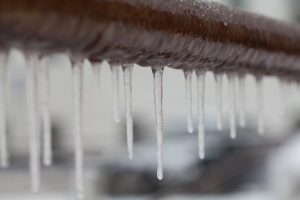 “Wait, what?” you might be wondering, “Why are we already talking about winter? Didn’t Fall just start?”
“Wait, what?” you might be wondering, “Why are we already talking about winter? Didn’t Fall just start?”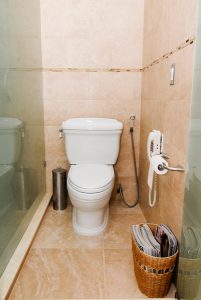 Are low flow plumbing fixtures really all they’re cracked up to be? In a word, yes.
Are low flow plumbing fixtures really all they’re cracked up to be? In a word, yes. So you hear a strange noise coming from behind your walls—you might even think it’s coming from the front door, but you check, and it’s not—it’s a knocking sound of some kind.
So you hear a strange noise coming from behind your walls—you might even think it’s coming from the front door, but you check, and it’s not—it’s a knocking sound of some kind.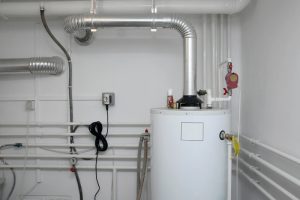 No matter the season, no matter what outdoor temperatures are, there is one home comfort system you will need year-round, on a daily basis. That is your water heater! It’s easy to take this system for granted, along with the fact that you’ll get hot water from your taps whenever you need it.
No matter the season, no matter what outdoor temperatures are, there is one home comfort system you will need year-round, on a daily basis. That is your water heater! It’s easy to take this system for granted, along with the fact that you’ll get hot water from your taps whenever you need it.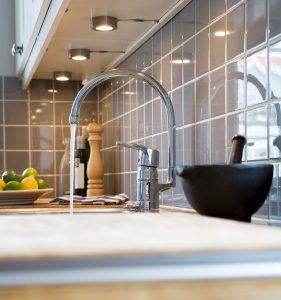 In our last blog post, we explored some of the ways in which you can
In our last blog post, we explored some of the ways in which you can  Drain clogs are an unfortunate part of life, particularly when they occur in one of the most used spaces in your home—the bathroom. Taking care of backed-up drains tends to be one of the most basic jobs of a professional
Drain clogs are an unfortunate part of life, particularly when they occur in one of the most used spaces in your home—the bathroom. Taking care of backed-up drains tends to be one of the most basic jobs of a professional 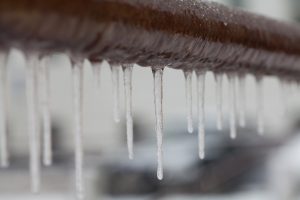 Temperatures are mild for the time being, but soon enough, they’ll drop to unbearably cold levels. As such, you’ve probably already start preparing by winterizing your air conditioner and getting maintenance done for your heating system, right? But what about your plumbing system? As fall progresses and we inch closer toward winter, the time to prep your plumbing is now.
Temperatures are mild for the time being, but soon enough, they’ll drop to unbearably cold levels. As such, you’ve probably already start preparing by winterizing your air conditioner and getting maintenance done for your heating system, right? But what about your plumbing system? As fall progresses and we inch closer toward winter, the time to prep your plumbing is now.
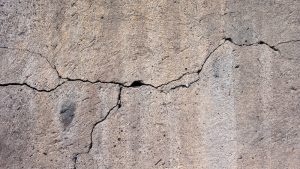 For any homeowner who’s already had to deal with one, the term “slab leak” can strike fear in their heart—and for good reason. But, what is it that makes a slab leak so formidable when it comes to plumbing problems? Isn’t a leak a leak? Well, there are factors that set slab leaks apart, which we’ll be exploring in today’s post.
For any homeowner who’s already had to deal with one, the term “slab leak” can strike fear in their heart—and for good reason. But, what is it that makes a slab leak so formidable when it comes to plumbing problems? Isn’t a leak a leak? Well, there are factors that set slab leaks apart, which we’ll be exploring in today’s post.